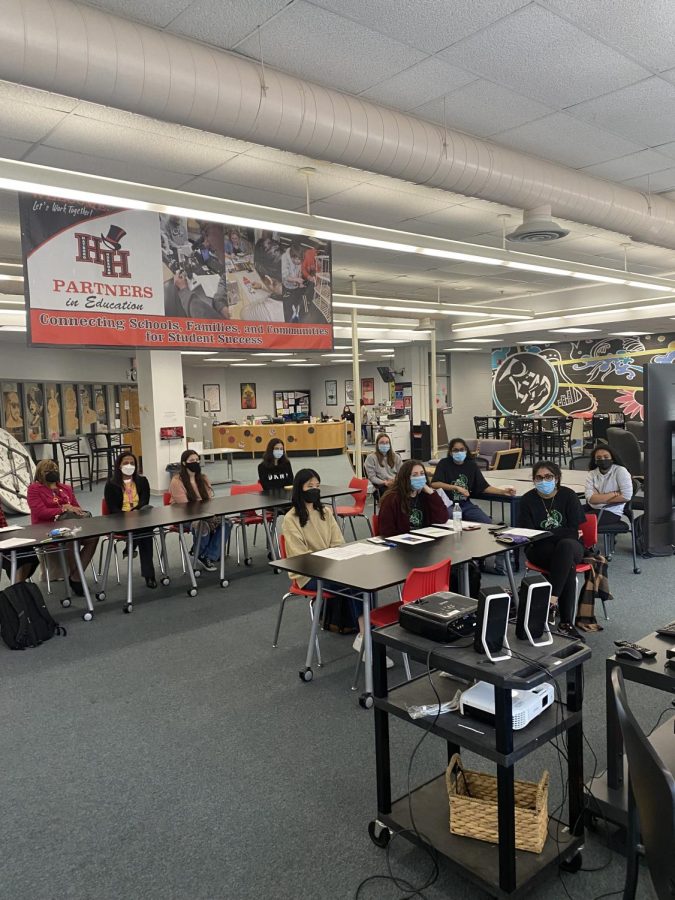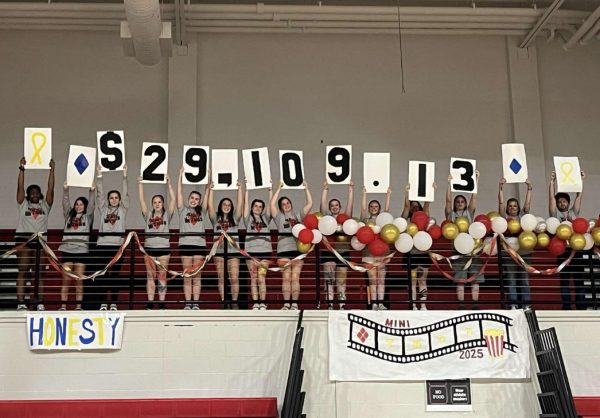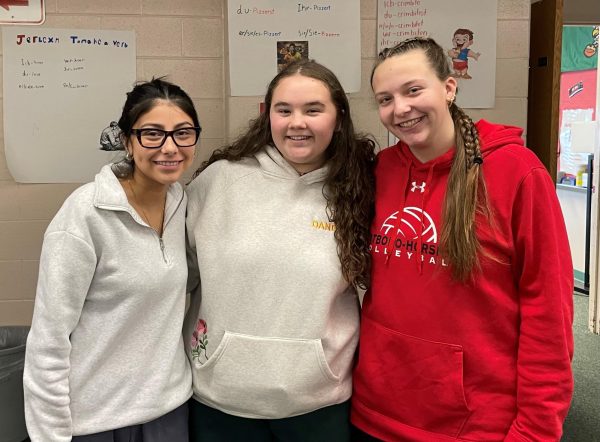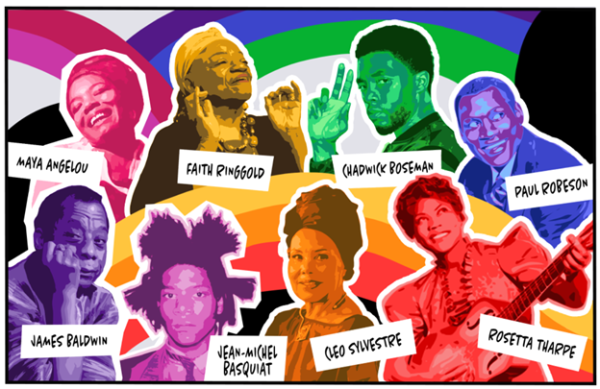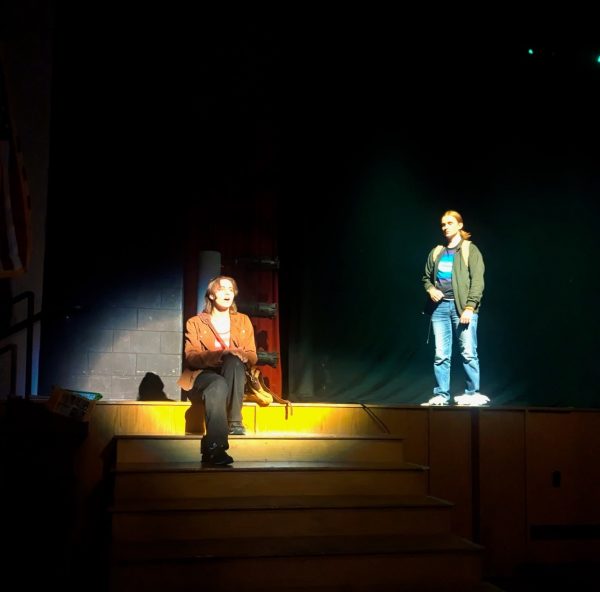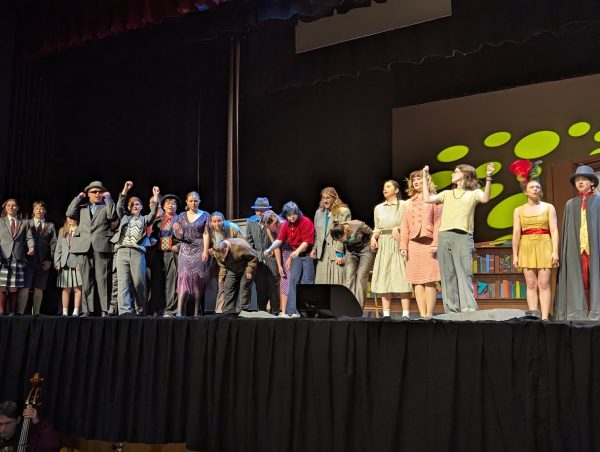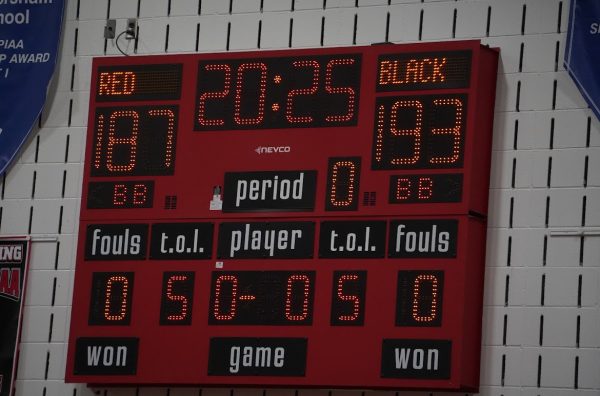Inspiring the Next Generation
In honor of Black History Month, the Future Medical Leaders of America Club hosted a virtual conference on Feb. 23 featuring three prominent black doctors: Dr. Shannon Smith, a Medical Director for inpatient rehab; Dr. Brian McNeil, a urologist with the American Urological Association; and Dr. Kelli Burroughs, a gynecologist with the American Association of Gynecologic Laparoscopists.
The doctors discussed health disparities such as economic, racial and gender inequalities in their respective fields.
Four of the students in attendance were seniors Julia Fumo, Mahdia Ahmed, Talia Newman and junior Sreeprada Alladi. As aspiring doctors, nurses and STEM majors, each shared their own unique perspective of the conference.
FMLA co-president and aspiring doctor Julia Fumo helped organize the conference with math teacher Ms. Pier Carey. “We organized this meeting because we thought it would be important to hear from doctors with real life experiences in the field and who work with patients with health disparities,” said Julia.
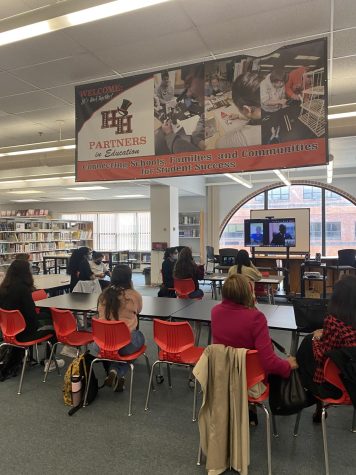
Specifically, Julia wanted the members of FMLA to hear the panelists’ experiences in health care. “Hearing people speak about their personal experience is so much more meaningful than any statistics or numbers that can be found online, as it humanizes and brings light on real issues present in the medical field,” said Julia.
This was especially true for attendee Sreeprada Alladi. “I plan on going into medicine, so I wanted to hear about the panelists’ jobs and their experiences that got them to where they are today,” said Sreeprada.
A primary topic discussed at the conference were the economic disparities within the medical field, a fact Julia found shocking.
“The biggest takeaway for me was learning from Dr. Smith that there is only one children’s hospital in the entire state of Mississippi, the poorest state in the U.S,” said Julia. “Philadelphia is home to one of the best pediatric hospitals in the nation, CHOP, which is only 45 minutes away. It’s hard to imagine that many other families across the U.S. might have to travel hours and may not be able to afford the time or money to give their children proper medical care.”
For Sreeprada, she too found the socioeconomic factors of health care to be her biggest takeaway. “There are so many non-healthcare factors that come into play, meaning even if the diagnosis is the same, healthcare can be drastically different,” said Sreeprada.
Others in attendance, such as Talia and Mahdia, were drawn to the work of Dr. McNeil, particularly his extended Genitourinary Oncological Visiting Professorship in Brazil.
“Dr. Brian Keith McNeil’s experience working in Brazil was so inspiring,” said Mahdia. “I hope to pursue a major in Global Public Health, and hearing him only grew my interests more. I know others at the event probably shared similar feelings.”
“It was great to learn about ways we can close the gap concerning health inequities,” agreed Talia.
Overall, hearing more about the experiences of Drs. Smith, McNeil and Burroughs solidified several of the attendees’ dreams of becoming doctors.
“I was so inspired after the conference,” said Julia. “Hearing the personal stories of how these successful doctors came to be and seeing how passionate they were reminds me of why I want to someday become a doctor: to be the advocate for patients that need it.”
“Being at the conference and hearing about how passionate the speakers were about their jobs made me want to be a doctor even more,” said Sreeprada.
As the conference exemplified, the medical field is always calling to a new generation of health care workers. With the world progressing further and further into a pandemic state, it is more important than ever that future medical leaders immerse themselves into issues of global public health. Whether these students choose to become gynecologists like Dr. Burroughs or urologists like Dr. McNeil, it is important that they stay passionate, well-informed and eager to help others in need.
“It doesn’t matter what you are,” said Dr. McNeil, “we just want you to be great!”

